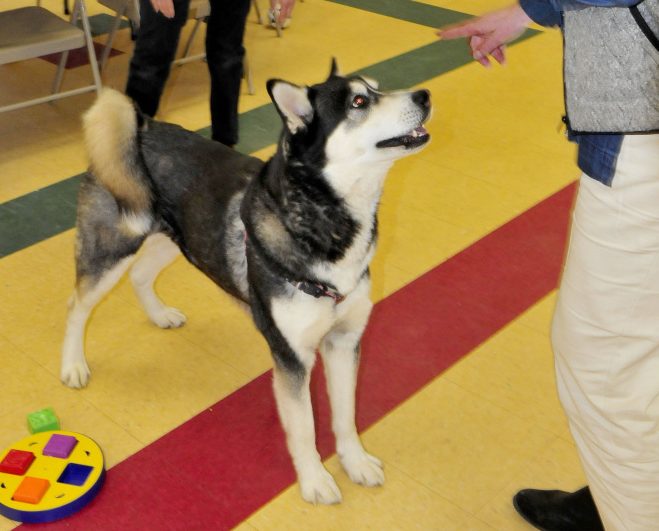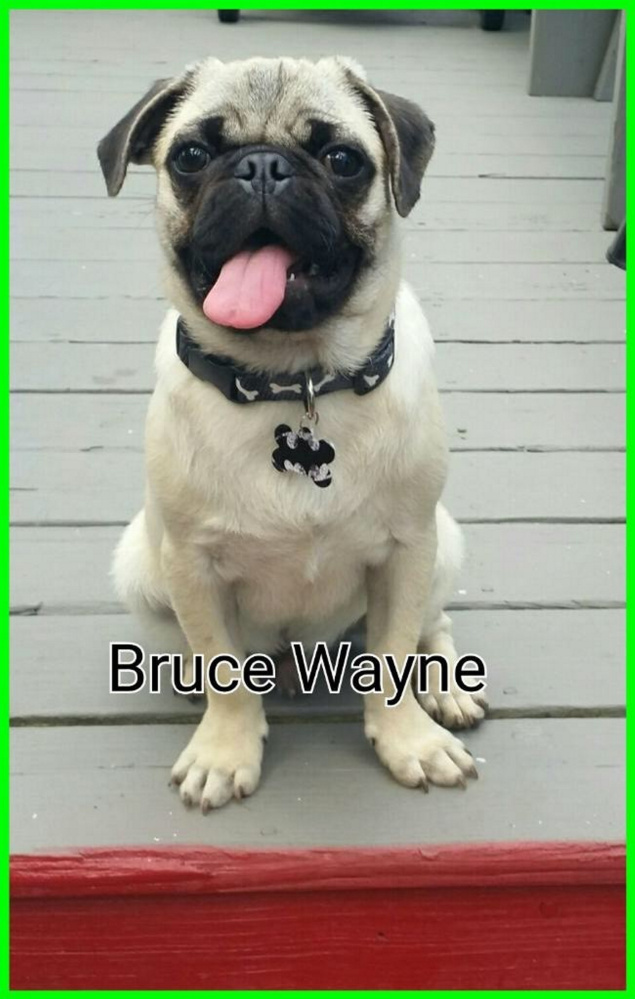A statewide council is beginning a review of Maine’s dangerous-dog laws after a series of attacks in central Maine has drawn concerns about enforcement and animal rights, while an unprecedented “pardon” of a canine from Gov. Paul LePage has elevated awareness of the issues.
The Animal Welfare Advisory Council, which advises the commissioner of the Department of Agriculture, Conservation and Forestry on issues related to the Animal Welfare Program, is tackling the project and plans to have recommendations ready for the next legislative session.
Rep. Catherine Nadeau, D-Winslow, also will be a part of process. A case in Winslow in which a dog was killed and its owner hurt prompted her to propose legislation to strengthen the laws, which will be held until the next session.
The council is made up of stakeholders representing animal control officers, shelters, pet shops, the public, kennels, towns and advocates, as well as those with expertise in horses, livestock and animal welfare law.
“All the laws were pretty much made to deal with certain situations that arise,” said Liam Hughes, director of the Animal Welfare Program. However, not all situations match the laws, he said.
Hughes couldn’t give a specific example because most of the cases are still open.
However, he said that it’s difficult to prosecute the people who are responsible in these cases.
“Every community in Maine has an animal control officer that has a story” about a bite or attack that could have been remedied if the pet owner had taken responsibility for the dog, or had more education, he said.
The council’s first meeting is scheduled for 9 a.m. Thursday, April 27, in the Burton M. Cross State Office Building in Augusta.
‘UNUSUAL’ CASES
Dakota made national headlines when Gov. Paul LePage granted the dog a “full and free” pardon on March 30.
The 4-year-old husky was deemed a dangerous dog by the court in February 2016 when she killed a dog, named Zoe, in Waterville. In January, she went back to the same residence and attacked Zoe’s owners’ new dog, named Bruce Wayne, grabbing it by the neck, according to Kennebec County District Attorney Maeghan Maloney. Maine District Court ordered on March 21 that Dakota be euthanized for the repeat attack, but the dog’s owner has filed an appeal in the case, arguing that the governor’s pardon should dismiss the order, among other things.
A request for the reports filed at the time of the two incidents could not be fulfilled immediately, according to Waterville police Chief Joseph Massey.
Last August in Winslow, a woman was attacked by two pit bulls while walking her Boston terrier. The terrier died that day from its injuries and its owner, Sharron Carey, still is recovering from some of her injuries.
The court ordered that both dogs be euthanized for the attack, but the pit bulls’ owners, Danielle Jones and Brandon Ross, are appealing the order.
Earlier in June, a 7-year-old boy was attacked and killed by a pit bull while playing in a yard with two other children. Hunter Bragg, of Bangor, was at Gary Merchant’s home in Corinna when Merchant’s pit bull attacked. Merchant, who was related to Bragg, had the dog euthanized.
The Penobscot County Sheriff’s Office did not file any charges in the case.
There is no statewide record of dog bites and attacks in Maine, although Hughes said they hope to change that, so it’s not known whether these cases represent an increase for Maine.
Towns, however, do keep records of reported dog attacks.
Waterville, Winslow and Clinton combined had 31 dog bites or dog incidents in 2016, according to data from area Animal Control Officer Chris Martinez. Of those, 13 resulted in charges and two dogs have been euthanized.
According to the Centers for Disease Control and Prevention, there are about 4.5 million dog bites each year in the United States.
Hughes said he sees no trend for the “unusual cases” that have happened over the last year, “except for the fact that I believe that the owners of the animals did not quite understand what their animals were telling them, or what their animals needed.”
In part, these stories have inspired the council to revisit the laws about dangerous dogs. While dogs can pay the ultimate price for attacks, it’s often responsible ownership that could have prevented the attack in the first place.
‘WE CAN DO BETTER’
Nadeau, a state representative for Winslow, said she looked at the stories from Winslow and Corinna and thought, “We can do better.”
She presented L.D. 858, “An act to strengthen the dangerous dog laws.” It would allow law enforcement to determine whether a dog is dangerous, would require the court to take that into consideration, and would require law enforcement to apply for a temporary order to take the dog to a humane society, or similar facility, or order it euthanized. It also specifies that a dog must be euthanized if it killed or seriously hurt a person, or even only another domesticated animal.
Nadeau does not agree with some parts of the bill, she said, but she couldn’t make revisions to it in time. The bill is being held until the next legislative session, so Nadeau and the council can work on the laws and make recommendations.
She emphasized that she does not want to take dogs away from their owners unless there is an incident, even though the proposed bill includes that provision.
“I do want people in the neighborhood to realize that this is a dangerous dog,” she said. Nadeau wants aggressive dogs to be muzzled and on leashes, and for the owners to put out signs by their homes so people are aware. “Our intention is to make the people that live around these dangerous dogs feel safe.”
Nadeau used the example of Sharron Carey, who was attacked while walking her dog. If the owners had put up signs, Carey would’ve taken another route with her dog, Nadeau said.
“She will never walk the streets again because of what happened, and I don’t want anybody else to feel that way,” she said.
Now people in her town are frightened about the precedent the governor’s pardon may set. Could the pit bulls who attacked Carey receive a pardon from LePage as well?
Those who live in the area are “not happy” with that possibility, according to Nadeau.
SPOTTING AGGRESSION
Nadeau’s goal is to prevent a dangerous dog from hurting someone, or another animal, before it’s actually deemed dangerous, she said.
“I would like to say as a citizen of my town, ‘Can you go see if that dog is dangerous?'” she said, adding that there is a dog in her town she questions right now. “It’s not just me who’s worried; it’s other people in the town.”
According to her, local law enforcement officers should be able to respond to calls about aggressive dogs. They should be able to know the difference between aggression “that has crossed the line” and “someone defending territory,” she said, in part because of their training in dealing with aggressive people.
If law enforcement officers said they aren’t qualified, however, Nadeau said she would respect that.
Both the Waterville and Winslow police chiefs said their officers would not be qualified to do that.
Massey, Waterville’s chief, said officers don’t get any formal training to identify aggressive dogs. They respond to reports of attacks and issue a charge of keeping a dangerous dog if the case fits the statute requirements, he said.
“I don’t think that we should, somewhere down the road, be mandated to get some kind of training to identify an aggressive dog,” he said.
Massey also said that training about aggressive people couldn’t cross over, because officers couldn’t communicate with the dogs.
Winslow police Chief Shawn O’Leary also said the officers do not have that kind of training.
“That would not be something that I would be in favor of. It is not law enforcement’s job to determine if a dog is aggressive or not aggressive,” he said. “We have way too much on our plate dealing with humans.”
Hughes, the director of the Animal Welfare Program, also disagreed with Nadeau. Canine body language, he said, is like a second language that a person has to take time to learn, like French or Spanish.
And while there are similarities between human and animal aggression, he said, it’s really “apples and oranges.”
Most police departments in Maine also have small training budgets, Hughes said, so while the agency provides animal training, most focus on the bigger issues, such as drunken driving and domestic violence.
“Having good, well-trained animal control officers out there in the field is the best thing,” he said. The council plans to look at finding better ways to fund those officers, so even small towns can staff the positions. Right now, thanks to “low pay, long hours and lots of frustration,” the turnover rate for the field is high, he said. The agency trains 20 to 30 new animal control officers in the state every six months.
COMPLICATED LAWS
State law says that a law enforcement officer can charge an owner with keeping a dangerous dog, a civil violation, after investigating a complaint of an attack or bite. A court then would decide whether the dog was “dangerous.” Maine defines a dangerous dog as one that bites a person or domesticated animal not trespassing on the dog owner’s property, or that causes a person to fear imminent injury.
The court would impose a fine and either order the dog confined; muzzled or restricted by a short leash; or euthanized if it has killed or hurt someone, has a history of assault, or previously was declared a dangerous dog in court.
The dangerous-dog laws first were adopted in 1987, and the last update came six years ago, in 2011.
“Even if we do redo these laws and we make them as good as we can, 10 to 15 years from now we may find that the situation has changed again,” Hughes said.
For some situations, the law doesn’t work because the circumstances in the attack aren’t worked into the law, he said. The animal could have been provoked, or previously neglected or abused.
“It’s a very complicated topic,” he said. “Over the past 20 years the science behind animal behavior has improved drastically, so we have a better idea of what animals are communicating and what they’re trying to say to us if we’re smart enough to pay attention.”
However, Hughes said the science won’t be central to the council’s process.
“Some of that science is still out,” he said.
While it might be brought up, the group won’t focus on it, partly because 20 years from now, the science could show something completely different again.
Under the current law, animals also are viewed as property.
When asked if he thinks that’s the correct way to handle cases involving pets, Hughes said, “I’m not going to say ‘yes’ and I’m not going to say ‘no.'”
“People love their pets, and they’re very attached to them,” he said. “It’s a $71 billion-a-year industry.”
The council will have to take the owners’ emotional attachment into account when working on the laws, he said, but the Legislature will have to deal with the issue of property rights.
The council also will address the punishments laid out in the statute, Hughes said. It wants to make sure that judges and district attorneys have the ability to make “good decisions based on the facts of the case.”
One of the things the Animal Welfare Program teaches new animal control officers is to “keep an open mind,” Hughes said.
“Does what you find in your investigation match the punishments that are available?” he said.
Euthanasia, or putting the dog down, still will be a possible solution, he said, but it shouldn’t be the only option available.
OWNERS’ RESPONSIBILITY
Hughes emphasized multiple times that they “want to make sure the owners are held accountable for what’s happening. If it’s something they could’ve prevented, they need to be held accountable for it.”
This is something local law enforcement wants to strengthen, as well.
“What I would like to see is holding the owners more accountable,” said Winslow police Chief Shawn O’Leary. “I feel that the owners should be held civilly liable for not controlling their dog.”
O’Leary thinks it should be a serious crime if a dog, already deemed dangerous by a court, gets out and attacks someone again and causes serious injury. He said that should be a charge of aggravated assault, a class C felony, for the dog’s owner.
If it attacks another animal, he said, it should be a misdemeanor.
“Right now the only thing that suffers is the dog,” he said. “I mean, it’s the owner’s responsibility.”
People need to understand their pets’ needs, Hughes said, but they also need to be mindful of their neighbors.
Madeline St. Amour — 861-9239
mstamour@centralmaine.com
Twitter: @madelinestamour
Send questions/comments to the editors.





